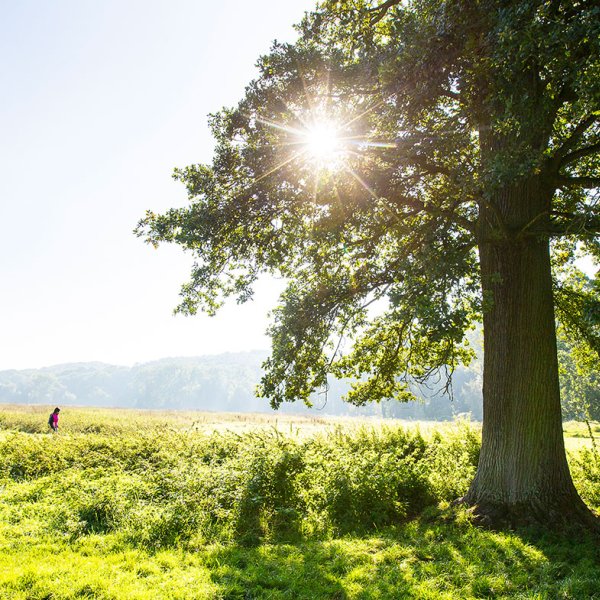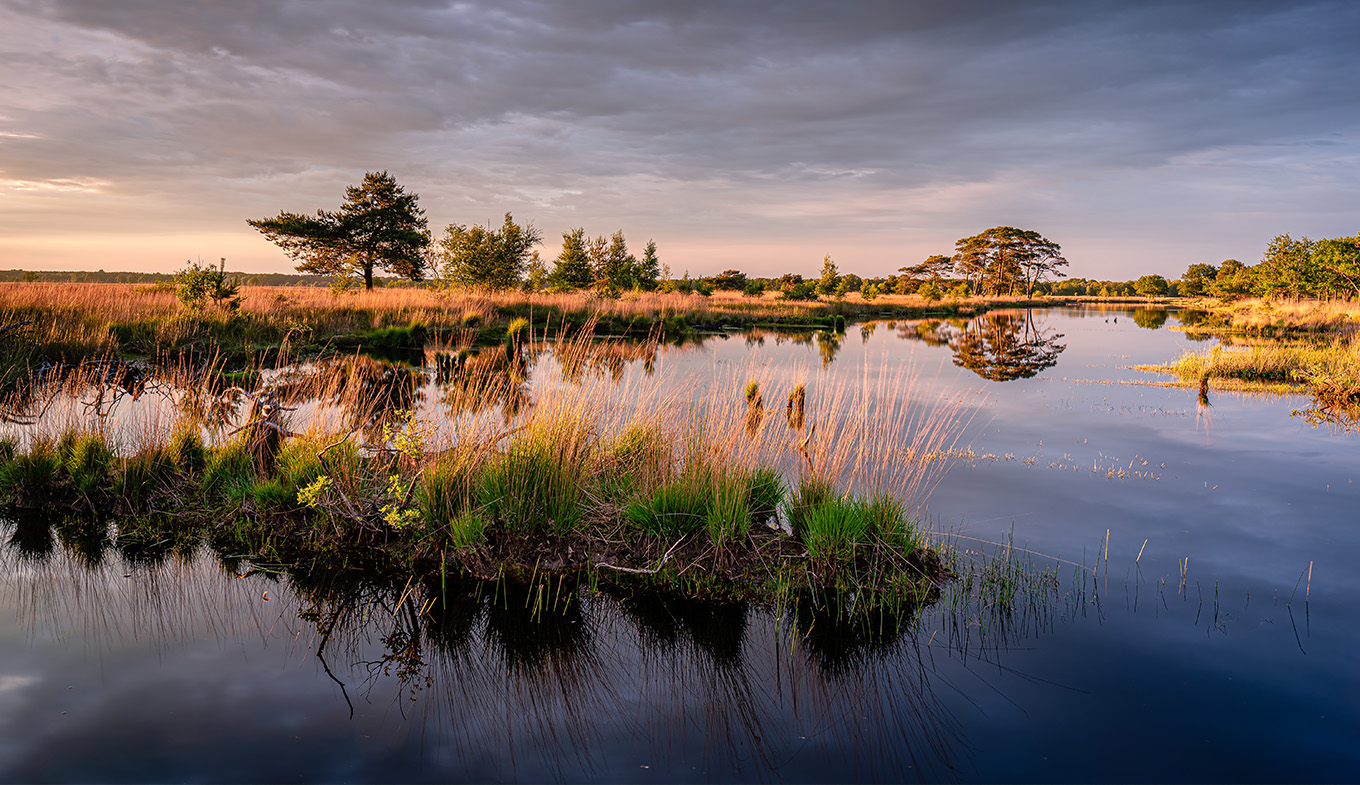
Dwingelderveld National Park
The unique nature of Drenthe
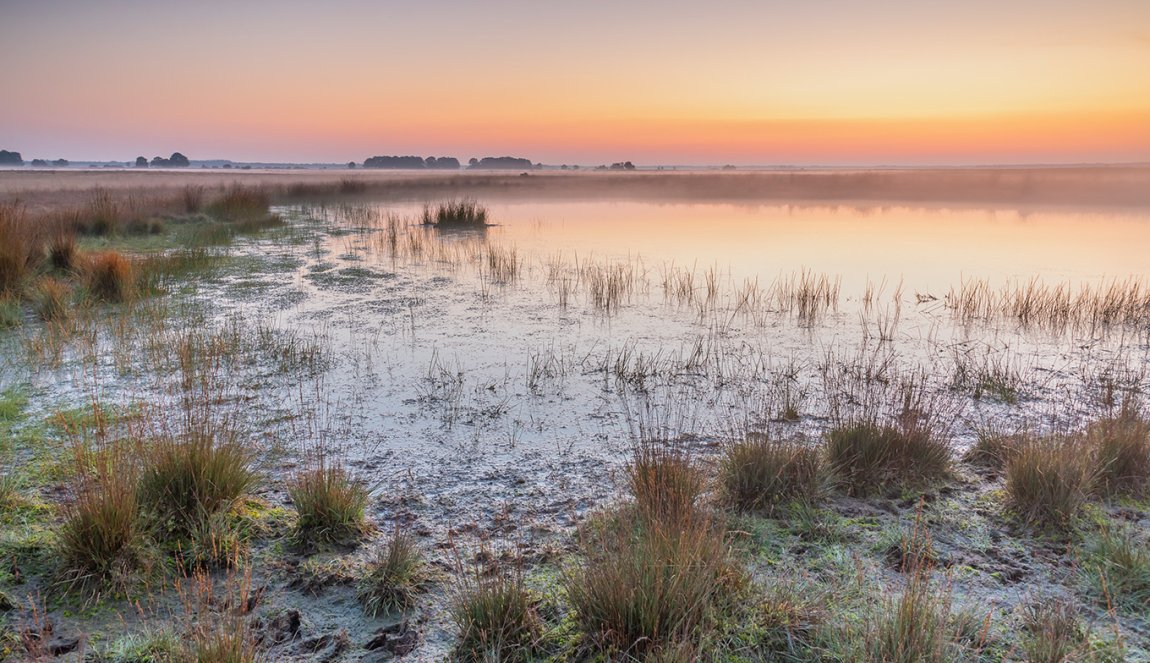
The province of Drenthe is home to the largest wet heathland region in Western Europe. Within the 3,700 hectares of Dwingelderveld National Park, heathlands and fens alternate with woods and shifting sands. Besides the lovely heather and bell heather, this is a habitat for many rare plants, birds, butterflies and almost all Dutch reptiles. A National Park since 1991, Dwingelderveld contains more than 60 fens and peat bogs around which varied and unusual flora and fauna have developed. Because the bogs are naturally poor in nutrients, raised bogs can develop, with unusual plants such as peat mosses, bog asphodel, cranberry and lavender heath.
'Witte Wieven'
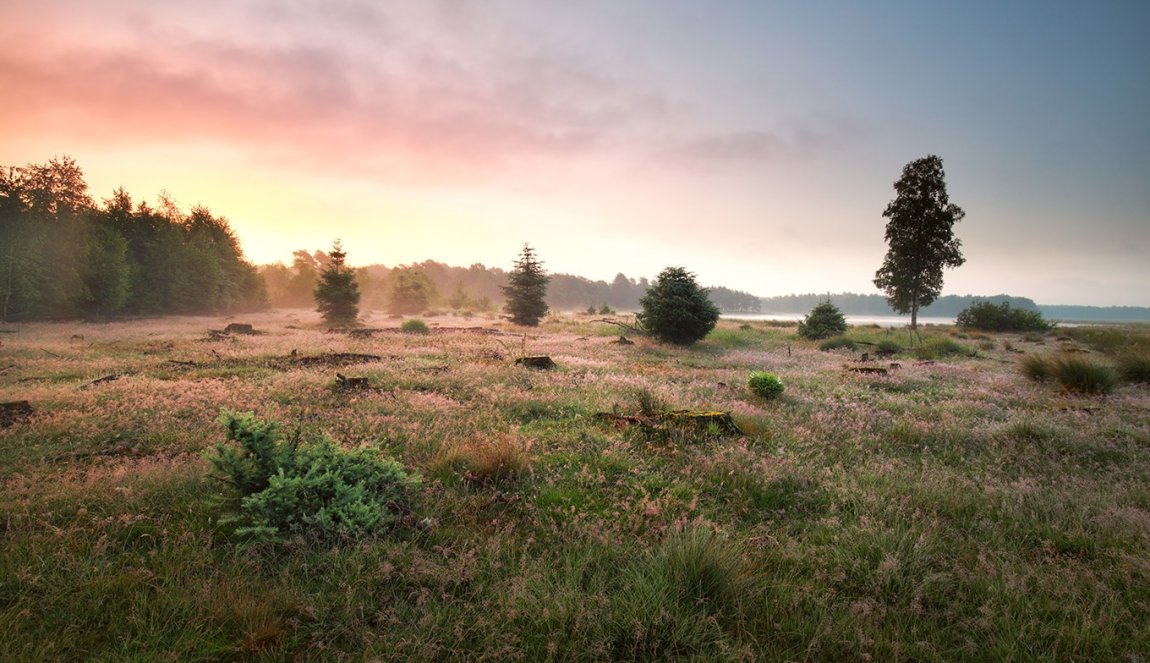
Plants such as heather, peat moss, bell gentian and orchids grow in the wet areas of Dwingelderveld. Although it’s a wet area, it is easy to explore on foot or by bike, thanks in part to the paths constructed above the water. Large groups of junipers with varying shapes, such as flat or columnar, grow in different places. In the past, these bushes were sometimes mistaken for the spirits of wise women (Witte Wieven) during dusk and people were afraid to go out on the moors. Many species of colourful dragonflies flit above the fens, looking for prey or a mate.
Snakes, woodpeckers, birds of prey
The nature reserve is home to many unusual animals, from adders and rare butterflies to roe deer and various species of birds. In Dwingelderveld, the green woodpecker, the black woodpecker and the great spotted woodpecker are the most common woodpeckers. There are also imposing birds of prey such as great buzzards gliding around. And with a bit of luck, you might catch sight of a peregrine falcon or rough-legged buzzard! On warm days, they soar through the air high above the land. The air above the fens is also filled with many species of colourful dragonflies, looking for prey or a partner. Another insect whose colour makes it easy to spot during a walk on open land is the dung beetle. They are often seen on droppings of the most common animals in the area such as sheep, deer and rabbits. You can also find the minotaur beetle here.
Covered wagon and sheep herding
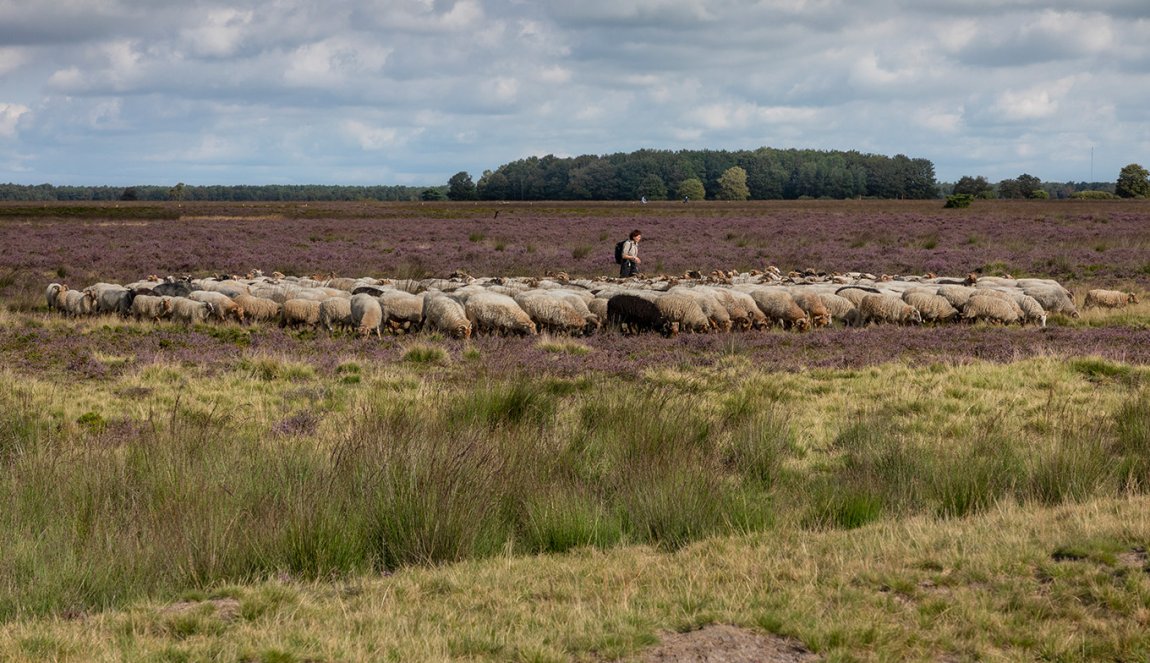
There are two flocks of sheep with shepherds in Dwingelderveld, in addition to sheep and cattle grazing independently in fenced areas. These areas are fenced off so that there is a clear distinction. There are dozens of grazing animals in the area that the land managers use to maintain the natural surroundings. The Drenthe sheep eat twigs of heather and keep these bushes neatly trimmed. They also really enjoy nibbling on grass and saplings. Many activities are organised here during the summer months. For example, you can take a ride in one of the covered wagons across the heath and attend a sheep herding demonstration. The covered wagon also makes it possible for disabled people to access the wet heath.
